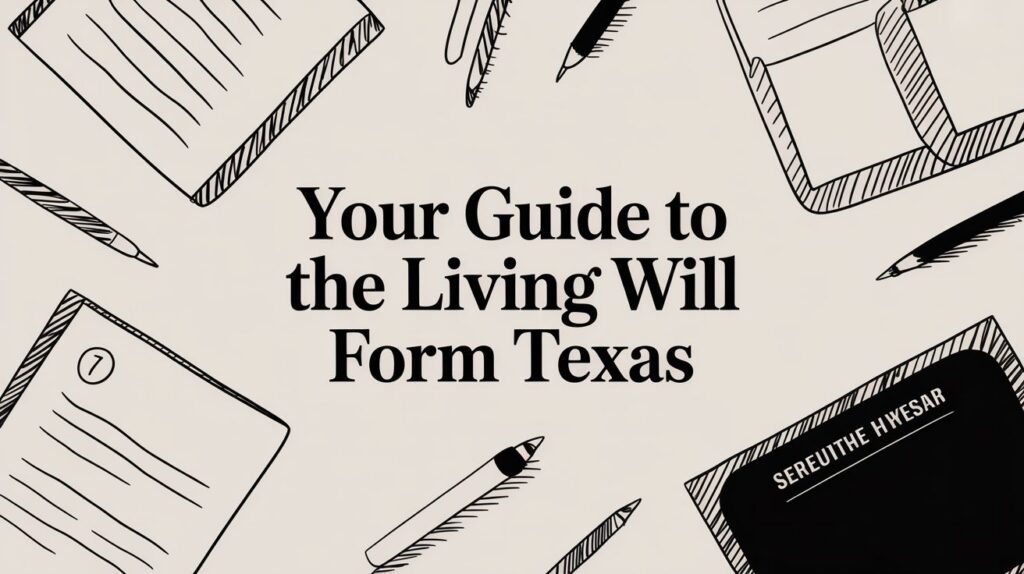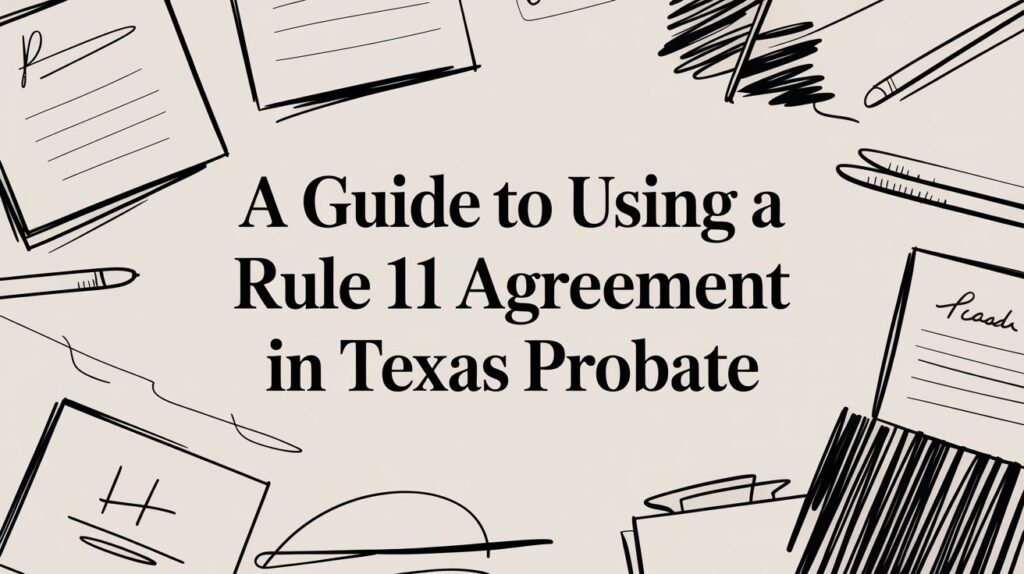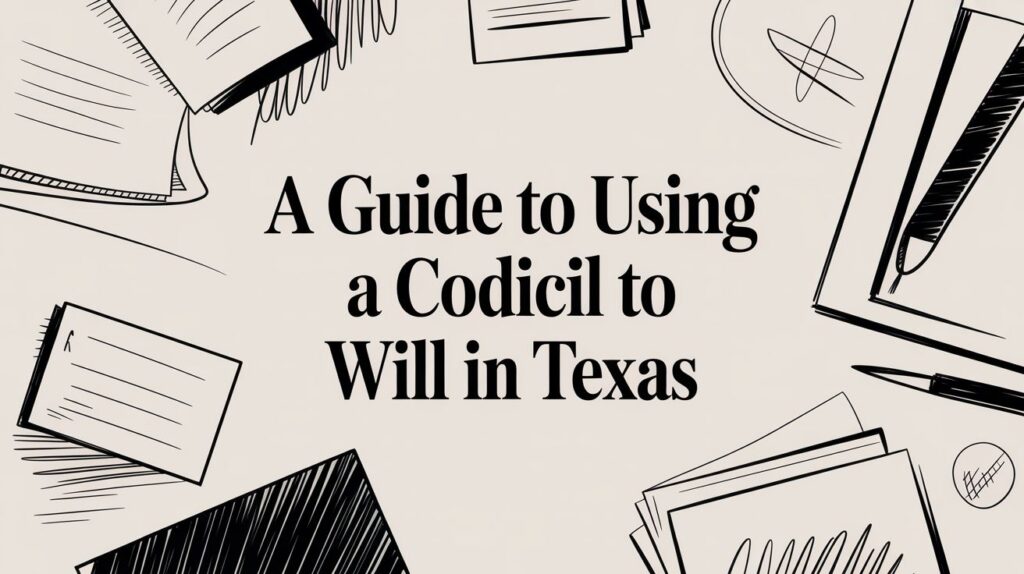It’s a subject few families like to confront, but it plays out every day in probate courts across Texas: the act of disinheriting someone from your will. Whether it’s the child who drifted away, the sibling who never returned your calls, or even a spouse whose relationship with you has long soured, people often want to know if they can legally leave someone out of their estate plan. The answer in Texas is both simple and layered: yes, you can disinherit someone. But it has to be done correctly, and in some cases, it may not even be entirely within your control.
Disinheritance may seem harsh, but it’s not always driven by spite. Some people disinherit family members due to years of estrangement, differing values, or a belief that one person simply doesn’t need the inheritance. Others do it to protect vulnerable beneficiaries from predatory relatives. And in certain cases, it becomes an unavoidable decision shaped by difficult family dynamics or past betrayals.
Regardless of the reason, Texas law provides a legal pathway to disinherit someone. But it’s not always as easy as crossing out a name or saying nothing at all. The law has certain assumptions about who should inherit when someone dies. So, to truly remove someone from your estate plan, you must override those assumptions explicitly and with great care.

Disinheritance Starts with a Valid Will
Before any talk of cutting someone out of your will can even begin, you must first have a valid will. Under Texas law, a valid will must meet several legal requirements. It must be made by someone who is at least 18 years old (or lawfully married or serving in the armed forces). It must also be made voluntarily, and the person creating the will must be of sound mind at the time.
The will must also be either entirely handwritten and signed by the testator (called a holographic will) or be typed, signed, and witnessed by two competent individuals. Wills that do not meet these basic standards risk being declared invalid. If that happens, your property will be distributed under Texas intestacy laws, which favor biological and legally adopted relatives. This outcome could override your intentions, especially if you were trying to exclude someone.
To disinherit anyone successfully in Texas, your will must be valid and legally enforceable. Simply telling someone they’re not in your will, or writing it on a napkin without witnesses, isn’t enough. And if your will is challenged in court, any weaknesses can unravel even your clearest intentions.
Who You Can Disinherit in Texas (And Who You Can’t)
You can generally disinherit anyone, except your spouse. Texas is a community property state, meaning that spouses automatically share ownership of most property acquired during the marriage. If you attempt to completely disinherit your spouse, they may have the right to claim a share of your estate anyway, regardless of what your will says.
This doesn’t mean you can’t limit what your spouse receives. With careful estate planning tools like marital agreements, trusts, or clear separation of property, you can potentially reduce or eliminate your spouse’s inheritance. But it takes intentional and sophisticated planning, not just writing them out of the will.
As for your children, Texas law allows you to disinherit adult children. However, it must be done clearly. Texas courts don’t interpret silence as disinheritance. If you simply omit a child’s name from the will, and that child believes it was an oversight, they could contest the will and argue that it does not reflect your true wishes.
You Must Be Explicit When Disinheriting a Child

To properly disinherit a child, the will must state in clear terms that the child is to receive nothing. There’s no need to explain why. Texas law doesn’t require you to provide a reason, but the language must make it unmistakably clear that the omission is deliberate.
For example, you might write: “I intentionally make no provision for my son, John Doe, who shall receive nothing from my estate.” This avoids the appearance of a mistake and drastically reduces the chances of a successful will contest.
Texas law does not require you to leave a token amount (like one dollar) to someone you intend to disinherit. That’s a myth. You can simply state that the individual is not a beneficiary, and that’s enough—provided the will is clear and legally valid.
What About Minor Children or Dependent Adults?
Disinheriting a minor child or an adult with special needs is another matter entirely. While you can exclude them from receiving certain property, you may still have legal obligations while alive. This could be child support or guardianship responsibilities. After death, disinheritance doesn’t erase any prior obligations you had during life, especially if a court ordered you to provide support.
In the case of a dependent adult child, Texas law may require additional steps to ensure that person’s needs are met. Using trusts or special needs planning tools is often necessary to avoid harming their eligibility for government assistance. In these cases, disinheritance should be part of a broader financial and care strategy, not just a line in a will.
Common Reasons People Challenge Disinheritance
Even when the will appears clear, disinheritance often leads to legal battles. The person left out may claim that the will was forged, that the testator was mentally unfit, or that they were unduly influenced by another beneficiary. These claims are more common when large estates are involved or when family tensions have long simmered below the surface.

One of the most common claims is undue influence. This occurs when someone pressures the testator to change their will. This is often in a way that benefits them and excludes others. Elderly individuals, especially those isolated or in poor health, are particularly vulnerable. If a disinherited person believes another heir manipulated the testator, they may bring a challenge to overturn the will.
Another issue arises when the will is vague or inconsistent. If your will says one thing and your behavior during life says another, such as telling a child you’ll provide for them but then omitting them from your estate, courts may be asked to weigh the evidence of your true intent. Ambiguity is the enemy of disinheritance.
How to Make Disinheritance Stick in Texas
Texas courts will respect your wishes. All that matters is that they are clearly stated, legally valid, and not the result of fraud or coercion. The best way to ensure this is by working with an experienced estate planning attorney who understands Texas probate law. Your lawyer can help you draft language that leaves no doubt, secure proper witnesses, and create documentation that supports your intent.
You should also store your will securely and tell someone where to find it. If your will cannot be located after your death, a previous version (perhaps one that includes the disinherited person) could be admitted instead. Or, if no will is found at all, Texas intestacy law will take over, and the disinherited individual may receive a share of your estate after all.
Consider Supplementing Your Will with a Letter of Intent
While not legally binding, a letter of intent can be used to explain why you made the decisions you did. This letter can offer personal insight that may discourage legal challenges or provide clarity to a judge if the will is ever contested.
It’s also a useful tool for family peace. Disinheriting someone, even when justified, can trigger deep emotional wounds and long-term rifts. A letter of intent won’t change what the will says, but it can humanize your choices and help survivors better understand your perspective.
Disinheritance and the Rise of Alternative Planning Tools
Texas residents increasingly use tools beyond wills to manage disinheritance and protect their wishes. Revocable living trusts, transfer-on-death deeds, and payable-on-death bank designations allow you to transfer assets directly, bypassing probate entirely. These tools can offer more control, fewer opportunities for challenges, and a streamlined path to distribute property.
If your goal is to avoid probate and keep certain family members from inheriting, these tools may offer additional security. Remember, inconsistency between your will and other estate planning tools can create confusion and open the door to legal disputes. All parts of your plan must align.
Final Thoughts: Yes, You Can Disinherit—But Do It Right
Texas law respects your right to control who receives your property after death. You can disinherit an adult child, a sibling, or anyone else you choose. However, you must do so clearly, lawfully, and with precision. Forgetting to mention someone, writing a will without witnesses, or using vague language won’t hold up in court. And if your estate is contested, any sloppiness in your planning could undo everything you intended.
The power to disinherit comes with the responsibility to plan wisely. Whether you’re trying to protect assets, address a difficult family history, or ensure your legacy is handled your way, take the time to work with a professional. Cutting someone out of your will may feel personal, but under Texas law, it’s ultimately a legal decision—one that only works if the law is on your side.








